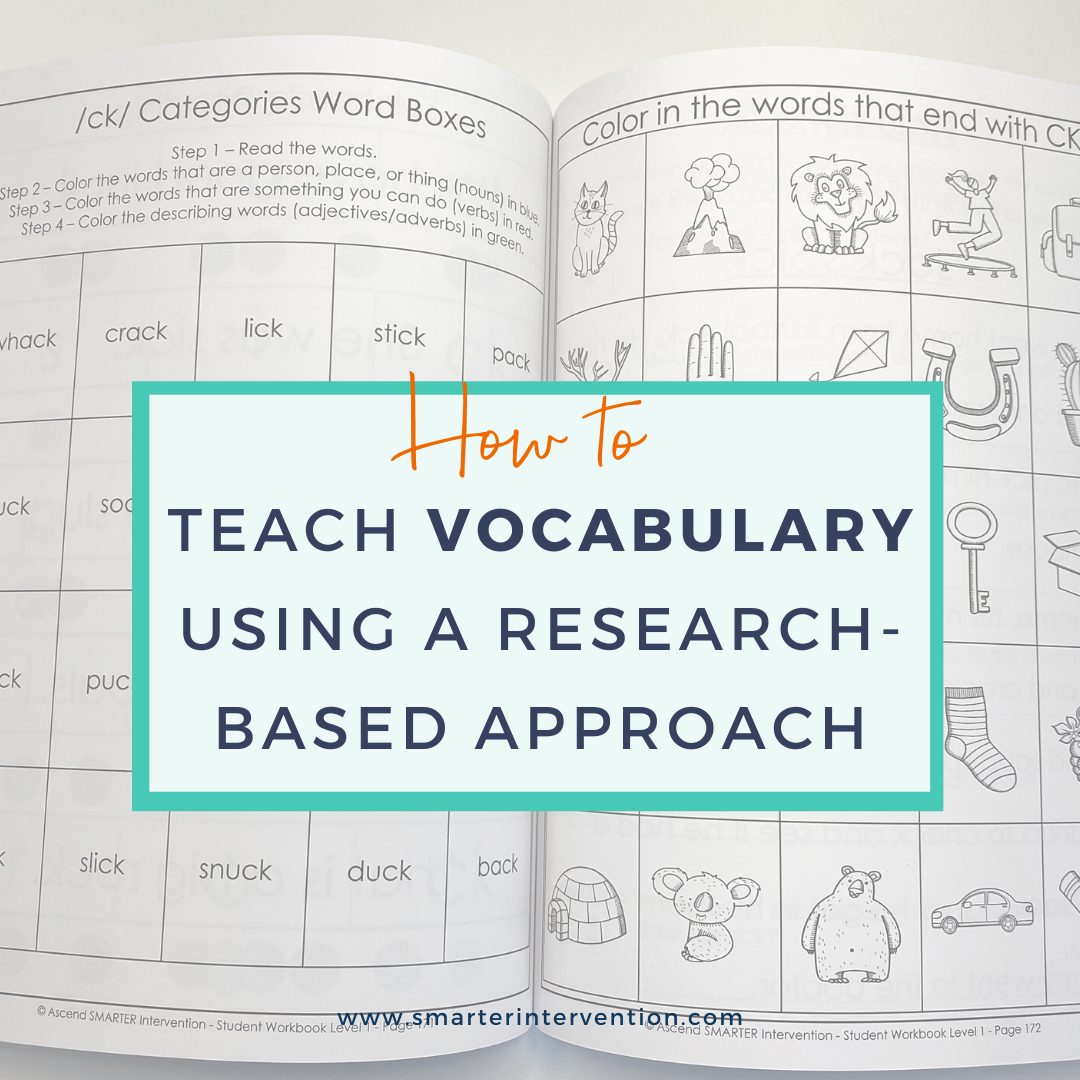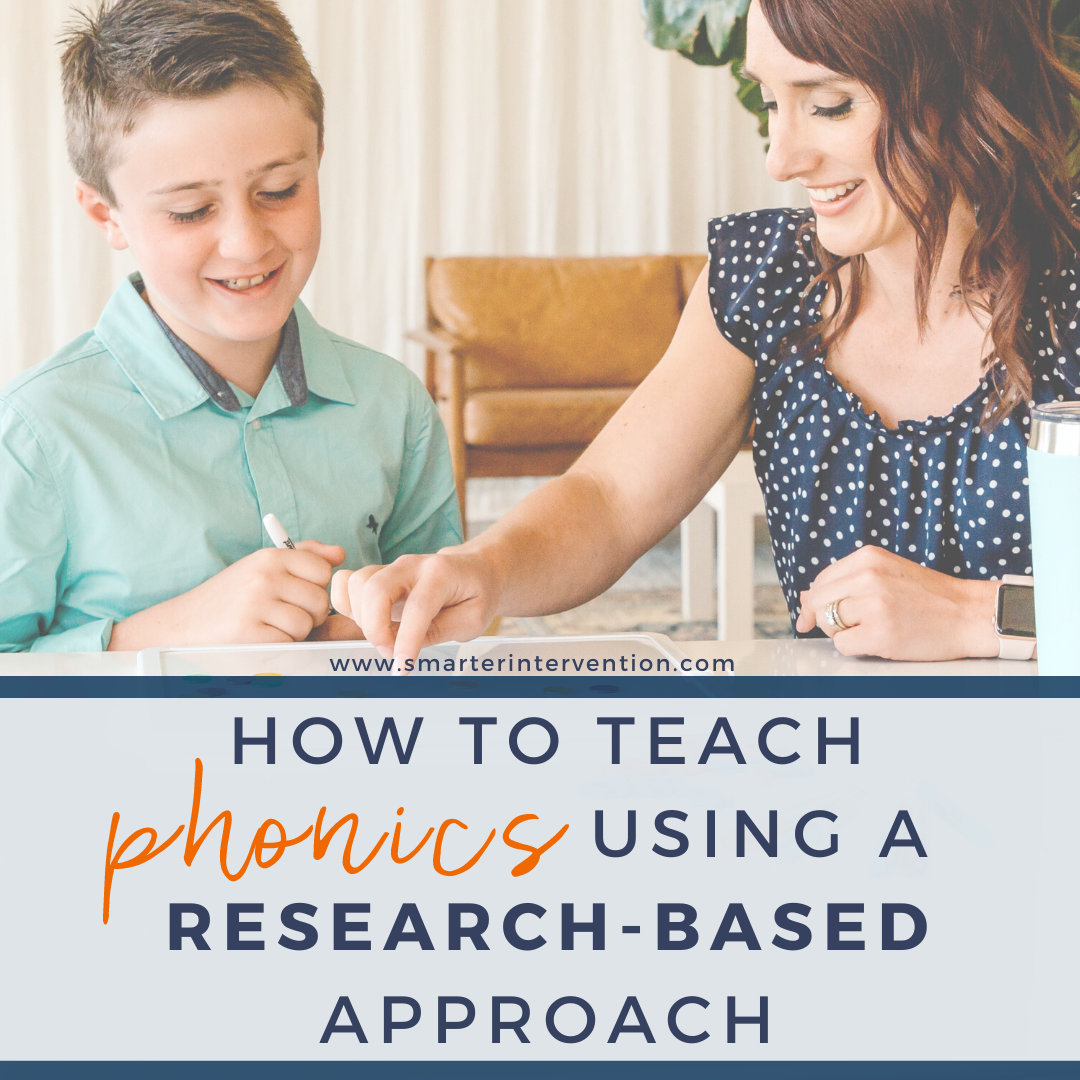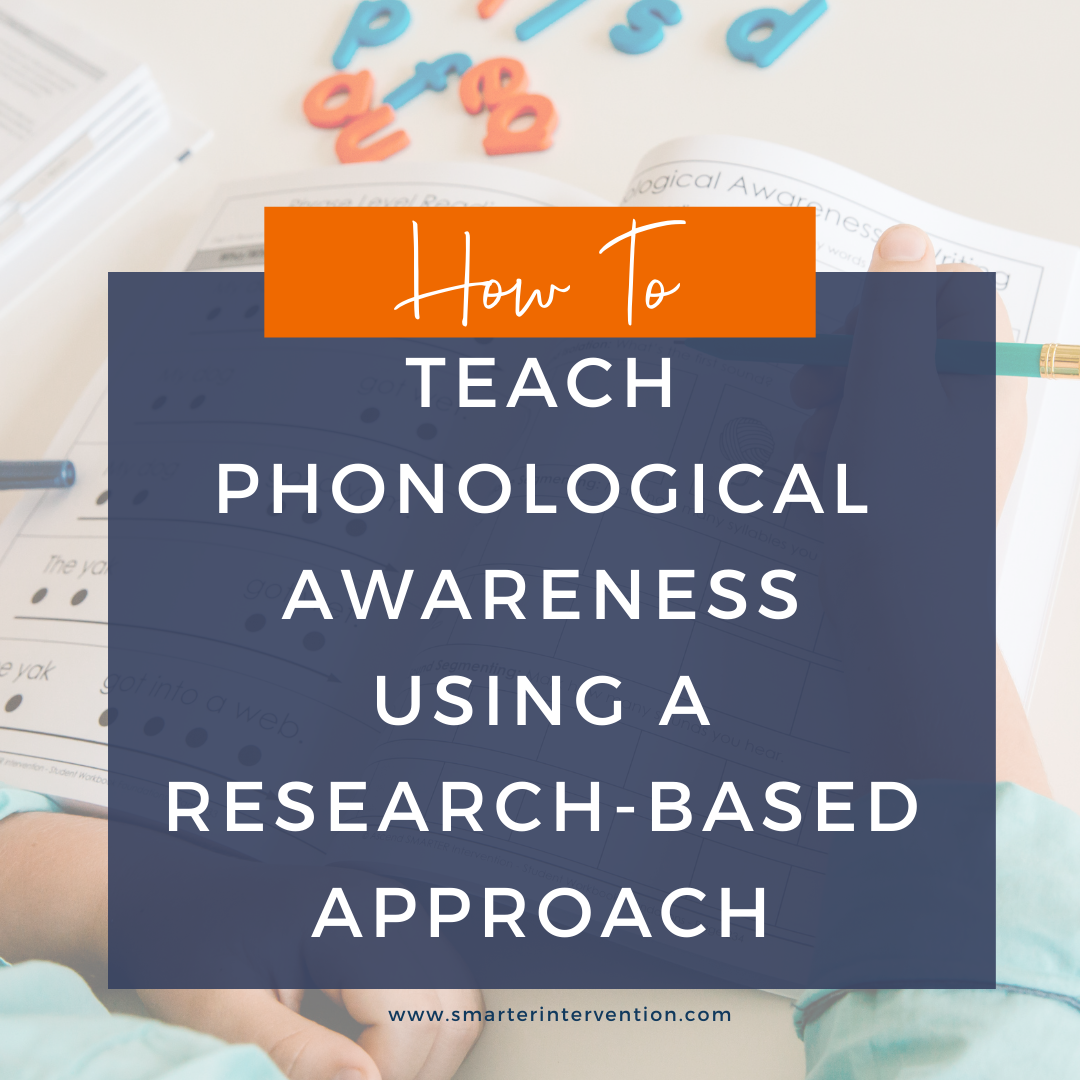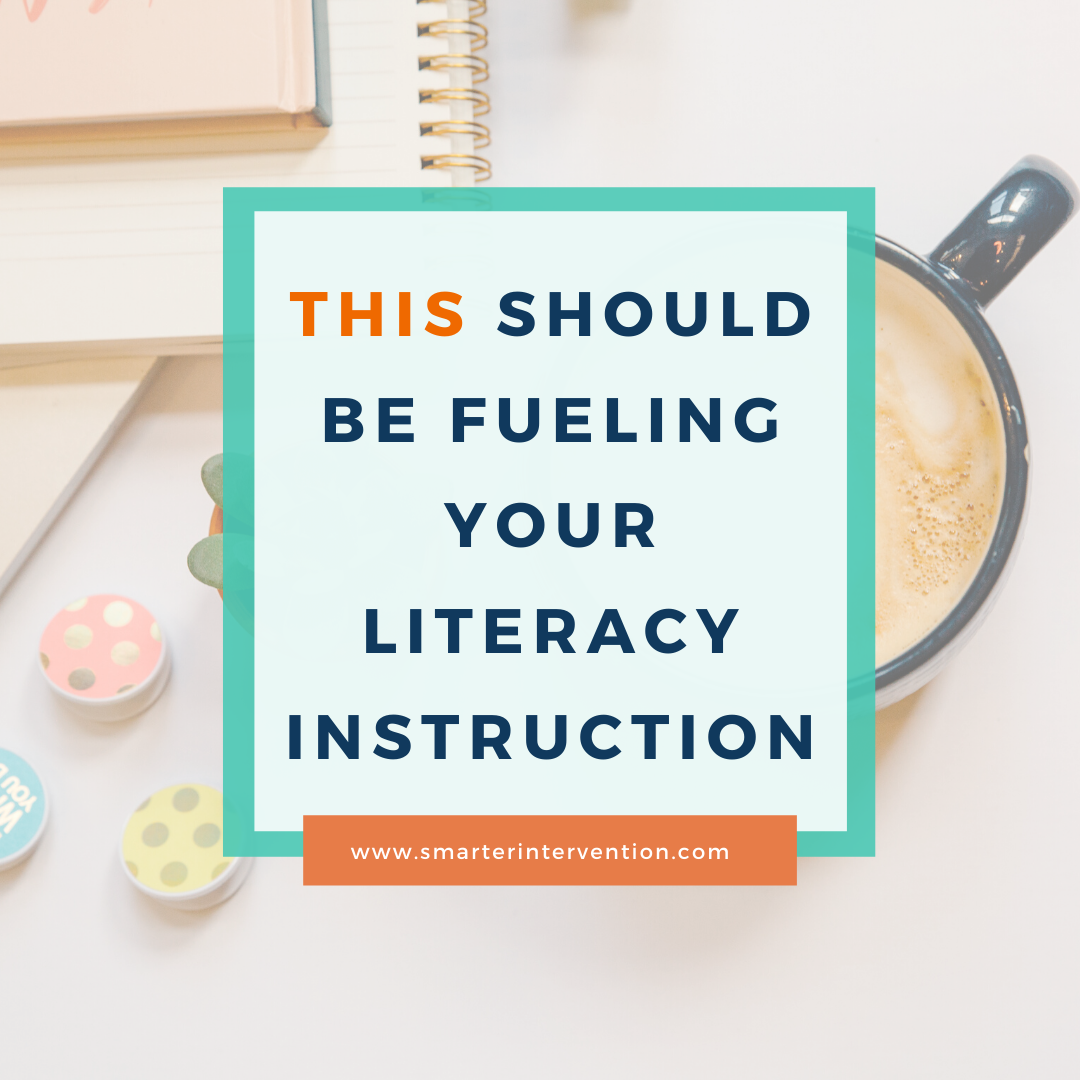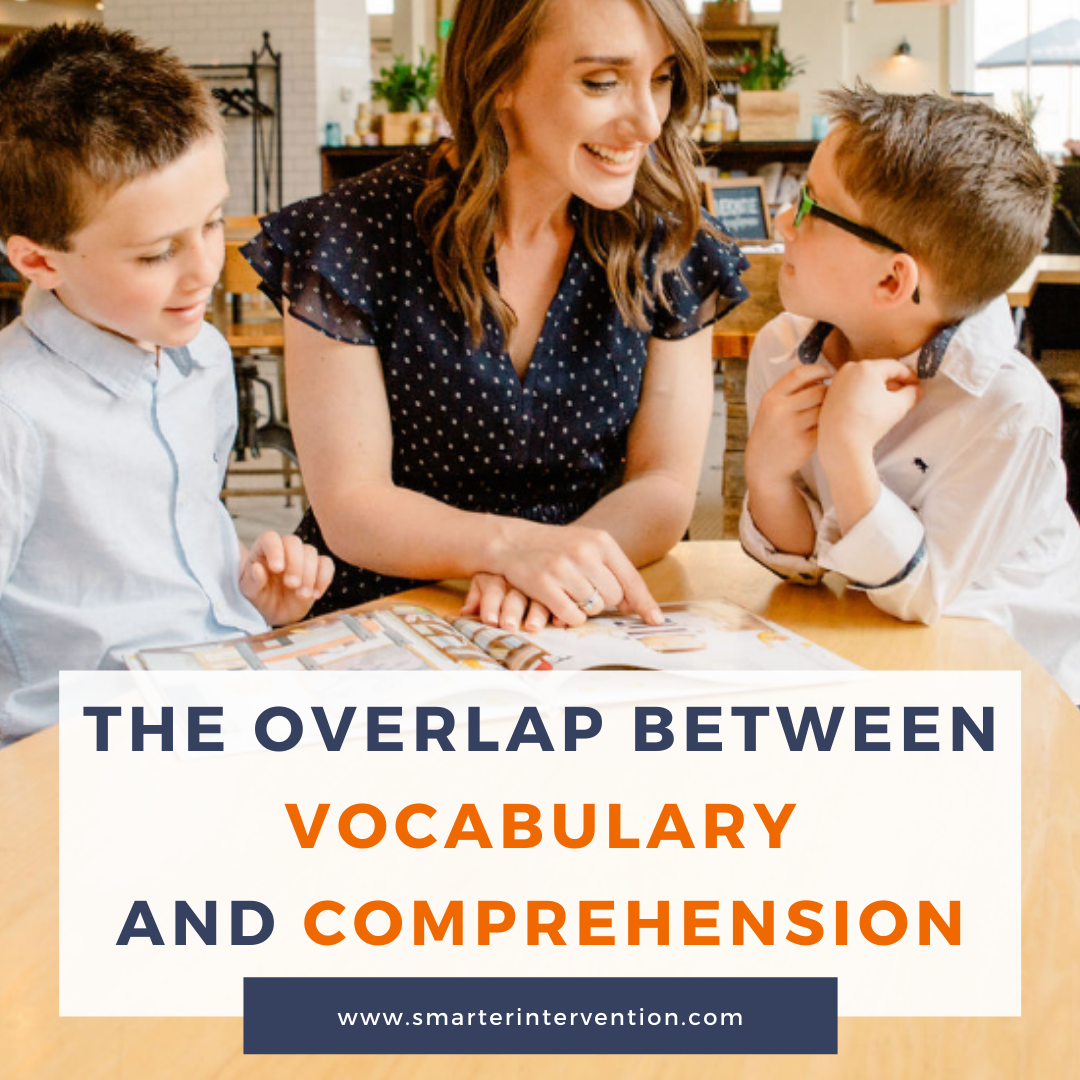Science-based literacy resources and articles
for families, educators and schools
Search by Category:
Categories
- Advocacy
- Authentic Literature
- Business
- Comprehension
- Data Tracking
- Differentiation
- Dyslexia
- Evaluation and Assessment
- Executive Functioning
- Games & Activities
- Helping My Child At Home
- How To
- IEP/504 Plan
- Lesson Planning
- Math
- Online Intervention
- Organization
- Parents
- Phonics
- Phonological Awareness
- Reading Comprehension
- Reading Fluency
- Research
- SLP
- Spelling
- Vocabulary
- Writing
How to Teach Sight Words using a Research-Based Approach
In reading intervention we hear terms like sight words, red words, high-frequency words, phonetically irregular words, heart words, and so many other variations used every day. Today, we are jumping in to explain what these words actually are, and what the research says about how we should be teaching them!
How to Teach Reading Comprehension using a Research-Based Approach
Now if you’re like us and you’re obsessed with the science of reading, you may already know that there is a very systematic and structure in which you can teach phonics to help give struggling and beginning readers the tools they need to be successful (and hey - no shame if not, you can check out our phonics blog too). But, did you know there is also really clear set of reading comprehension skills that students need to be successful comprehenders?!
How to Teach Reading Fluency using a Research-Based Approach
When we think about reading intervention, reading fluency is definitely one of the first things that come to mind. Today, we are breaking down exactly what reading fluency is and the ACTUAL skills we should be targeting.
How to Teach Vocabulary using a Research-Based Approach
When I started out in reading intervention - the thought of teaching vocabulary terrified me. Maybe it was because I wasn’t sure how much my students were actually struggling with it, I wasn’t sure how to assess it, I wasn’t sure how much of it fell on me to teach, maybe it was because I thought it was just morphology, or - maybe it was because I still remember how much I hated memorizing hundreds of definitions & word origins from when I was in school.
Whatever it was - I dreaded vocabulary because it felt overwhelming and the way I was taught when I was a student (find the part of speech, word origin, and definition) never seemed to be helpful - just tedious.
That is until I learned what vocabulary instruction should actually look like and why it is so important. Today - we are going to break that down.
How to Teach Phonics using a Research-Based Approach
In the field of reading - phonics is a pretty common term. However, there is much more to phonics & teaching the skills it encompasses than you might think.
Today, we are going to break down what exactly phonics is, and how we ACTUALLY should be teaching these skills to our students. Here’s the thing - there’s a LOT of information out there and it can definitely feel overwhelming if you are trying to pull all of this together alone. The good news though? It doesn’t have to be hard! Our goal is to give you a clear framework you can use to implement research-based instruction!
How to Teach Phonological Awareness using a Research-Based Approach
First things first, what is phonological awareness?
We’re so glad you asked, at the simplest level - it’s understanding the sounds of our language. It includes skills that we need to break words up into individual sounds and blend sounds together in order to “sound words out.” Phonological awareness DOES NOT require any knowledge of letters. Students could complete phonological awareness drills completely in the dark (meaning they don’t need to be reading or recognizing letters at all). The number of sounds in words and letters in words are not always the same!
The 3 Biggest Factors to Your Literacy Intervention Success
There are three main pieces to your (and your students!) success. We refer to these key pieces as the “3 Ms” - Motivation, Method, Mindset. In order to be truly effective, you need all three. Keep reading to learn about what this looks like in literacy intervention.
The Actual Cost of Duct-Taping Your Intervention Together
Struggling with scattered resources for reading intervention? Discover the pitfalls of the one-off approach and learn how to streamline your lesson planning. Find out why cohesion and intentionality matter and explore a program that targets all 5 Core Components of Literacy in EVERY lesson.
Implementing Effective Literacy Intervention Lessons
Learn the keys to effective literacy intervention implementation likened to driving a car: data fuels the journey, lesson design provides navigation, and execution is akin to driving. Adaptability is crucial, akin to navigating roadblocks. Stay true to research-based principles.
Navigating Your Literacy Intervention
Last week, we talked about how literacy intervention is like driving a car. Today, we are talking about navigating your literacy intervention so that you can help students close the gap as QUICKLY as possible without burning yourself out.
This Should be Fueling Your Literacy Instruction
When we think about our literacy intervention - we can compare it to driving a car. We know that in order to get to our final destination (in this case that is getting students to grade level), we need gas or some sort of fuel. Keep reading to learn about what part of your literacy intervention is the fuel that will allow you to get to your final destination.
The 3-Step Framework that Will Drive Your Intervention to Better Results
Over the last few weeks we have been talking about how there are many students who are reading below grade level, even after years of intervention. This week, we will be talking about an easy 3-phase approach to intervention that will allow all of us to change trajectories for students like this so that they can FINALLY get back to grade-level faster than ever before.
Why Some Students Are NOT Responding to Intervention
These students, like so many others, have continued to fall behind year after year. Often, they take on the label “non-responders” but this doesn’t have to be the case. Keep reading to learn more about why this student has continued to struggle year after year and how we can change the trajectory for students like her.
Why Tier 3 Students Continue to Struggle
Our Tier 3 students are those who are considered to be significantly below grade level. These children are those that are identified and receive IEP services and support. Even with these supports, however, many students continue to struggle. Keep reading to learn why.
The Reason 66% of Students Aren't Reading on Grade Level
When we discussed this statistic with the team - it got heated. If you know us at all, then you know that we believe every child deserves success and the fact that two-thirds of them are not able to access grade-level materials is gut-wrenching. We did some digging and realized that the reason that 66% of 4th-grade students are not reading at grade level is that…
How Many Students are Actually Reading Below Grade Level?!
If you know us well you know we LOVE statistics and data (if you‘re a data nerd too, you can sit with us - and if you’re not, that’s all good too because we’ve got you covered!!!)
We were reviewing the statistics that were pushed out by the US Department of Education in 2019 reviewing the National Report Card as it pertains to students and their ability to read at a proficient level by the time they are in the 4th grade.
And if you know these studies, the statistics are shocking. Keep reading to learn how many students are ACTUALLY below grade level when it comes to reading (the number may surprise you!) and to see how we can reverse this trajectory.
The Overlap Between Vocabulary and Comprehension
So often, my students struggle with the main idea and key details because they are either WAY too broad, WAY too specific, or start talking in the longest run-on sentence trying to tell me every last detail about the passage they can squeeze in.
Recently, I have found that it has actually been a vocabulary activity that has allowed me to explicitly teach them how the ideas in the stories and passages we read come together to form the main idea and key details.
Vocabulary is More than Morphology
Don’t get us wrong - we fully believe that morphology is important! In our program, we have two full levels devoted to morphology.
We need to recognize, however, that morphology is only a very small piece of vocabulary and we need to be explicitly teaching vocabulary with ALL of our students, regardless of age or level. Read on to learn exactly what vocabulary instruction needs to include to support vocabulary development.





